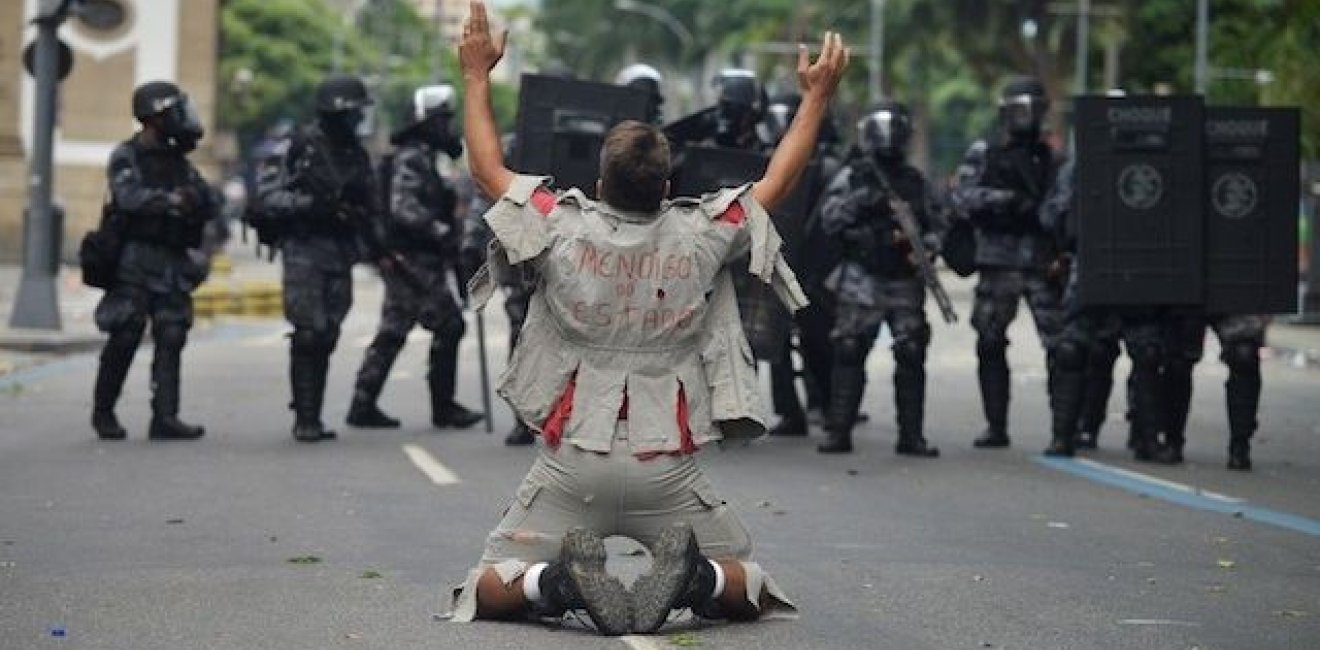
A blog of the Brazil Institute
Published by: Geopolitical Intelligence Services
This year gives Brazil another opportunity to pull out of a recession that has lasted nearly three years and overcome the fiscal chaos that has gripped its federal and state governments. If the government succeeds, economic growth may resume, at a moderate pace in 2017 and more vigorously afterward. If it fails, the country will face more serious problems.
President Michel Temer, the former vice president who took office when President Dilma Rousseff was impeached in April of 2016, has set an ambitious agenda for his 31 months in power. He has already sent, or will soon send, proposals to Congress for social security, labor, tax, fiscal and political reforms. Most of these measures are unpopular and will very probably bring protesters onto the streets; Mr. Temer’s public approval ratings are already as low as Ms. Rousseff’s in her last days. However, unlike his predecessor, President Temer has so far been able to win key votes in Congress by impressive margins, with an average of 80 percent support.
The first half of the year will be crucial. If President Temer is able to bring forward or pass most of his reform proposals by July, he will probably serve out his full term through the end of 2018. Otherwise, almost anything could happen – even his ouster.
There is an intense, widespread dissatisfaction among the public toward politicians in general, and President Temer is the consummate Brazilian politician
The 2017 political calendar started in February, with the election of a new house speaker and a new senate president – two positions vital for Mr. Temer’s legislative success. Temer loyalists have kept these positions, enhancing the chances that the president will continue to rack up legislative wins despite his unpopularity.
No alternatives
There is an intense, widespread dissatisfaction among the public toward politicians in general, and President Temer is the consummate Brazilian politician. Although disliked, the president is betting that he will continue to be seen by most relevant actors in the country – particularly the business community – as the only person able to provide some stability, for all his weaknesses.
Indeed, there is not a single viable alternative at the moment. Former President Luiz Inacio Lula da Silva (2003-2011), still the most popular leader (but also the most rejected), is engulfed in legal troubles. Lula is currently a defendant in five different judicial procedures and faces charges of corruption. The clear majority of Brazilians view all other would-be candidates for national leadership with either indifference or hostility.
Secure position
The constitutional options for bringing forward the presidential elections, now scheduled for October 2018, are unlikely to be used in the present political environment, although that might change if things get out of control. There are two legal avenues to remove President Temer from office before December 31, 2018.
One is if the Superior Electoral Court nullifies the Rousseff-Temer slate for using illegal funds in the 2014 campaign, which would trigger the election of a new president by Congress. The Court has been examining charges against Ms. Rousseff and Mr. Temer for several months, but the process is slow and subject to potentially countless appeals, which could postpone a final decision for months. Most Brazilians would not welcome a decision to let Congress vote on a new president in any case, since the legislature is held in extremely low public esteem.
Unconstitutional methods of removing the president from office appear to be inconceivable after the past two years
The alternative would be a constitutional amendment to curtail Mr. Temer’s term and hold direct elections this year. That would require a three-fifths majority for two successive votes in each house of Congress – a nearly impossible task, unless President Temer completely misplays his hand.
Operation Car Wash, the gargantuan investigation by public prosecutors of a corruption scheme involving the state-owned oil giant Petrobras, is certain to produce new revelations in the coming months that may hurt the government. Chances are, however, that the disclosures will not implicate Mr. Temer himself. More of his closest allies in the government might fall – several ministers have lost their posts or been forced to resign for this reason – but there seems to be little against him personally in the Petrobras case.
Even if more serious allegations surface against the president, from Operation Car Wash or another source, impeachment would only result if Mr. Temer totally mismanages the crisis, which seems unlikely. Unconstitutional methods of removing the president from office appear to be inconceivable after the past two years, when the country’s democratic institutions have been severely tested and shown a high level of maturity.
Even though 12 million Brazilians are unemployed and hundreds of thousands of civil servants are not being paid on time, street protests have been relatively peaceful. No one has died, and no serious violence has marred the demonstrations taking place on a nearly daily basis in dozens of cities across the country.
Modest expectations
Nobody expects that President Temer’s reforms will be approved by Congress without changes. If they were not watered down, the results for the country would be bigger and better. But even if truncated versions of the measures are passed this year – especially the pension and labor reforms – the economy could end up posting modest growth of about 0.5 percent. This forecast assumes that inflation stays close to the official target of 4.5 percent (plus or minus 1.5 percentage points) and that short-term interest rates fall to 10 percent (the central bank’s overnight rate is now at 13 percent).
These are far from brilliant results, but they would be enough to overcome the country’s worst recession ever and inspire some confidence in the future. Nevertheless, Brazil’s unemployment rate will still be in the double digits, the social climate will continue to be tense, and uncertainty and dissatisfaction will continue to prevail.
He surely wants to enter the history books as a man who brought calm to a very disturbed country
The timing is now or never for Brazil to enact measures to heal the economy. It will be politically impossible to do so in 2018, an election year for the executive and legislative branches at both the federal and state level. No sane politician will risk facing the voters while implementing or defending unpopular reform measures.
It is far too early to speculate about the possible front-runners in 2018. Much will depend on how President Temer fares this year, on the outcome of Lula’s legal problems, on how the fiscal crises affecting many Brazilian states plays out, on the performance of some big-city mayors elected last year, and – most of all – on the health of the national economy.
Mr. Temer’s opportunity is this year. If the president can pass his reforms, he will strengthen himself and his political allies immensely. He has pledged not to run for reelection – a promise he will probably keep, if only because his popularity is unlikely to rebound over the next 12 months,
However, President Temer can certainly hope to influence the choice of his successor. He surely wants to enter the history books as a man who brought calm to a very disturbed country, rescuing it from one of the worst crises in its history.
Image by DPA
Author

Professor, Insper; Special Advisor, São Paulo Research Foundation (FAPESP)

Brazil Institute
The Brazil Institute—the only country-specific policy institution focused on Brazil in Washington—aims to deepen understanding of Brazil’s complex landscape and strengthen relations between Brazilian and US institutions across all sectors. Read more

Explore More in Brazil Builds
Browse Brazil Builds
They're Still Here: Brazil's unfinished reckoning with military impunity



